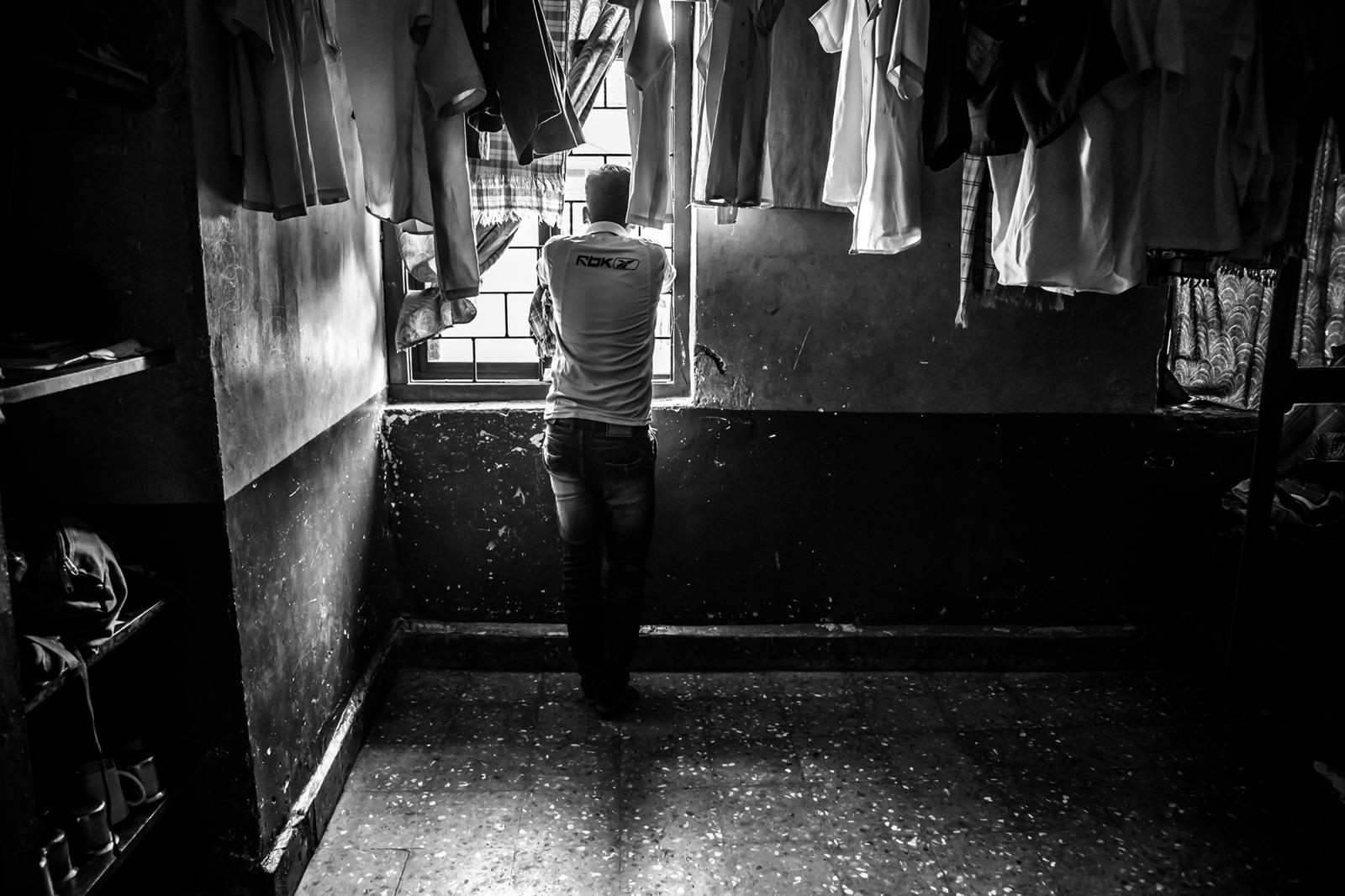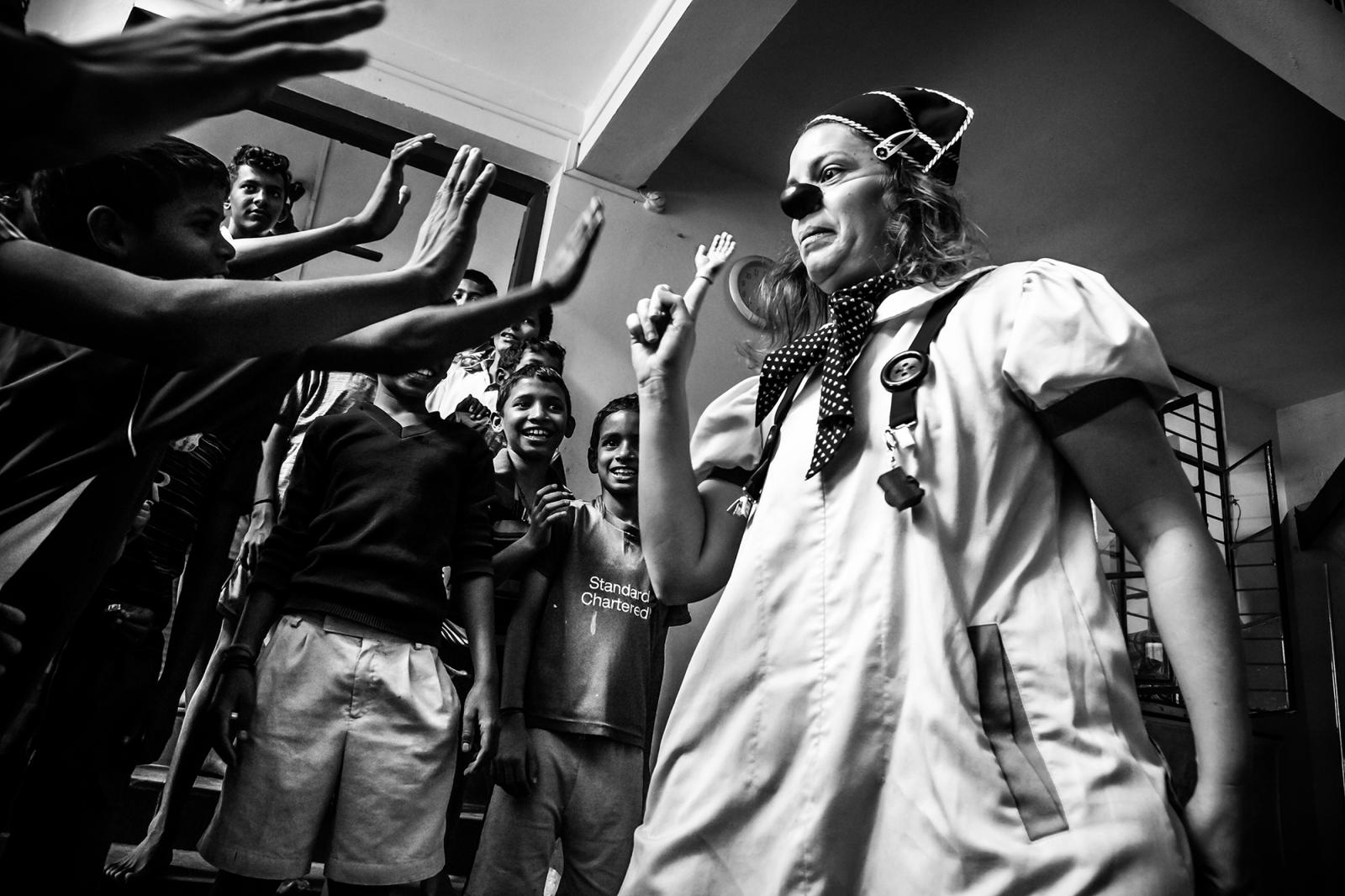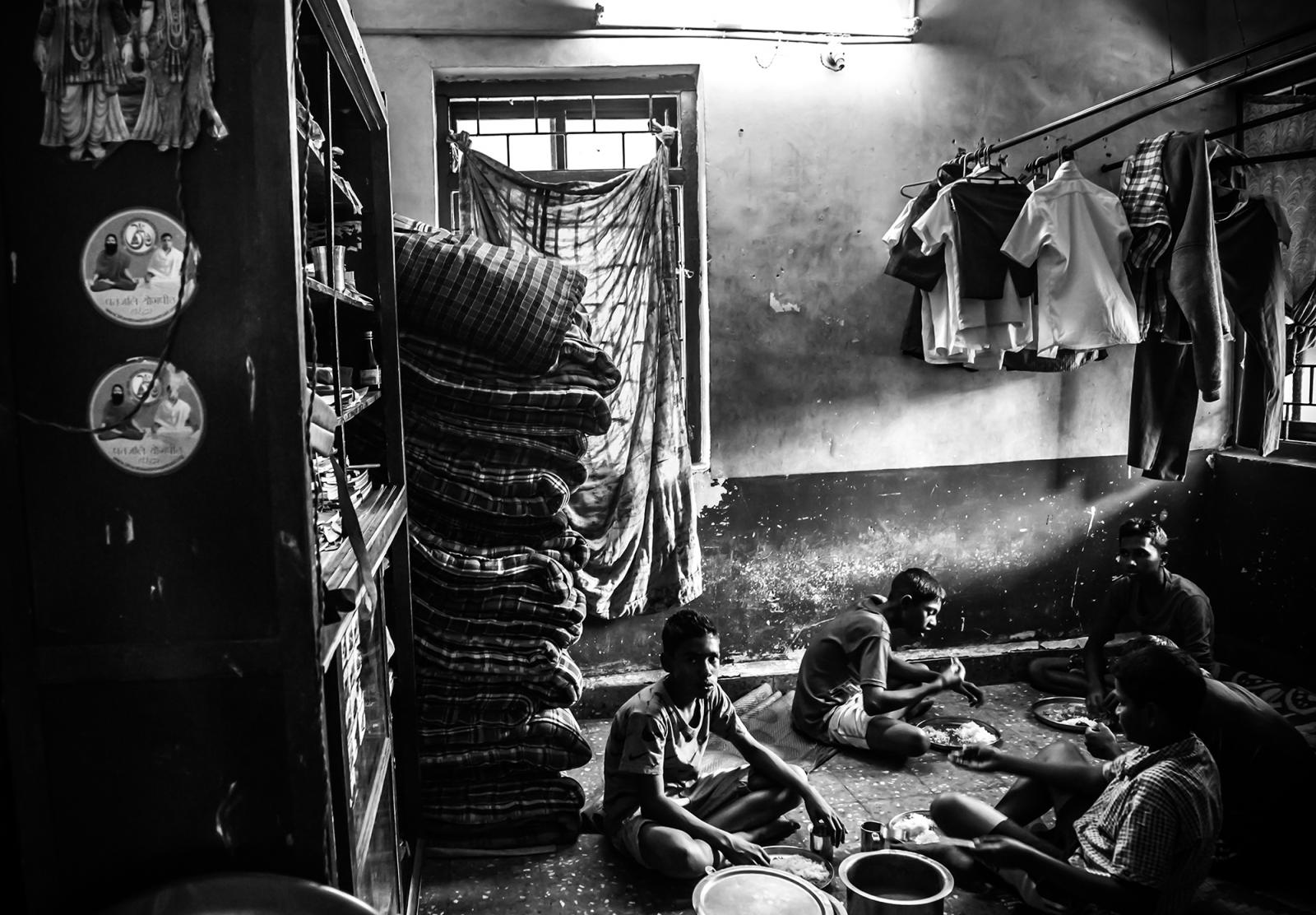The photographer and artist's work deals with the rejected, those which society turns its back to and prefers not to see: old people in nursing homes, gypsies in slums, prostitutes in “hospitality” apartments, the homeless on cardboard, children who live and die surrounded by mountains of garbage. The work is accompanied by a lingering research and the creation of a trusting relationship with the objects of photography. The nominated photographer won the UNESCO Art & Society Award, recognizing her ability to direct her gaze toward social injustices that exist simultaneously to bourgeois life all over the world.
In her new body of work, she manages to illuminate yet another dark spot of the world: the artist accompanied medical clowns who usually work in hospitals and in Israeli aid delegations, which are sent to contribute their share in disaster struck places across the world. This time they arrived at faraway orphanages in India, and she documented their work.
Her black and white photography is in fact photography in “gray”, subverting the more common representations of India as a colorful place, colorfulness which causes to forget (at least in the eyes of the satiated West) the destitute on every corner. Susan Sontag, in her important essay from 1977 titled “On Photography”, argues that photography cannot constitute the viewer’s moral stance, but it can help to generate such a stance. These things are also true for this body of work, which was made through distancing the camera from the traditional idea of India with its plentitude of colors, its stereotypical figures of fakirs and panhandlers, all too well known. She chose a monochromatic plate, distancing herself from the oriental image of India and emphasizing the humanism in the events she witnessed. Thus, complex relationships are formed in front of the viewer, and the photographs invoke questions about nature or the situations they depict.














